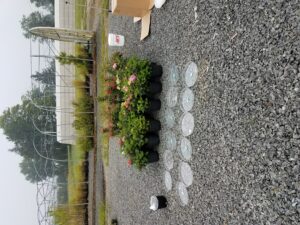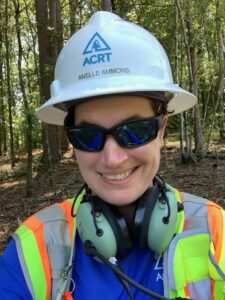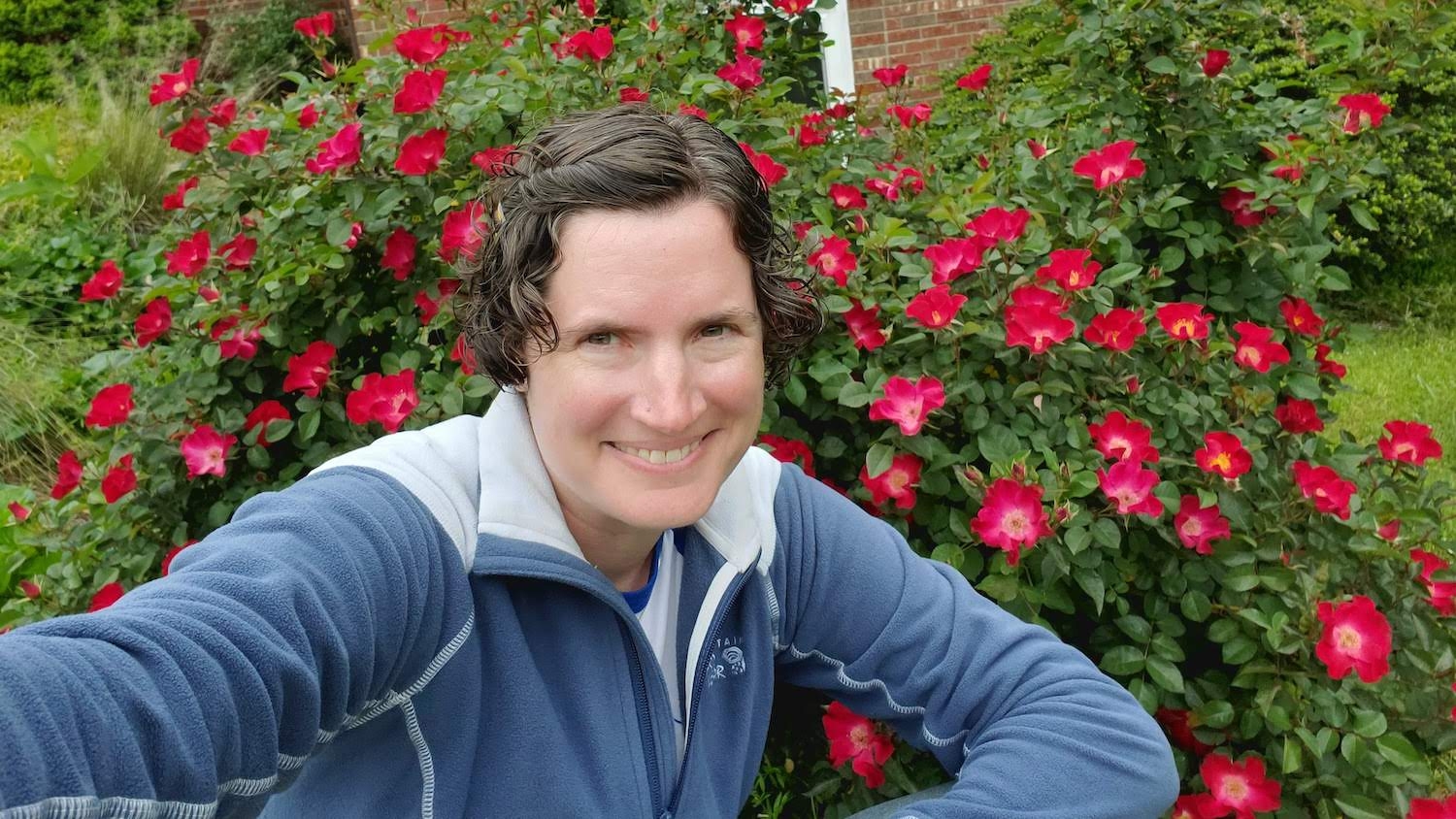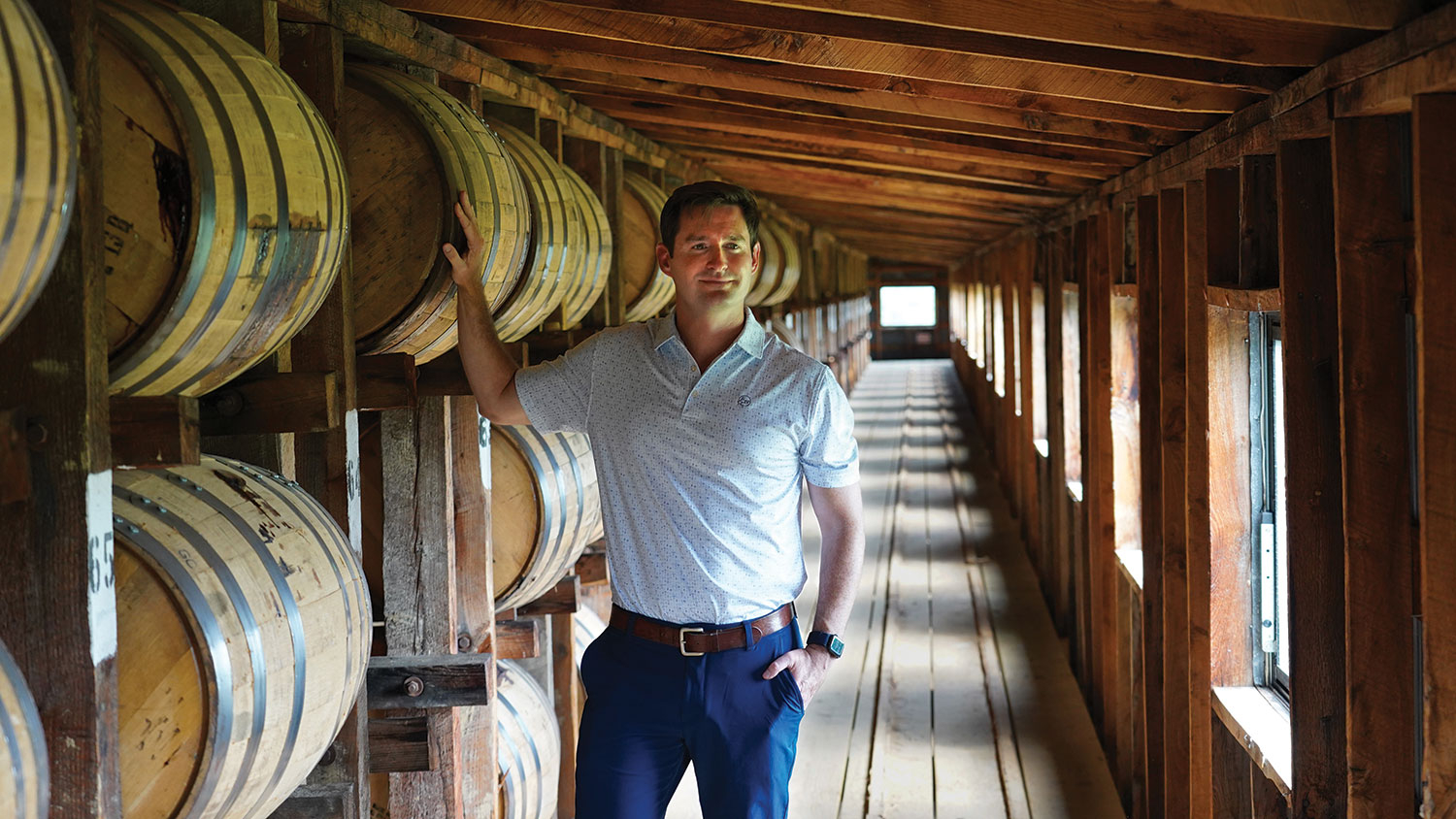ISA Certified Arborist Utility Specialist Anelle Ammons didn’t plan to complete a master’s degree, but inspired by her love of plants and all of the opportunities provided in NC State’s Online and Digital Education programs, she ended up doing just that.
After graduating with a bachelor’s degree in biology with a concentration in botany from UNC Asheville in 2003, Ammons took a break from her education and spent several years caring for her children. When her younger son approached school age, she began focusing on resumé building and her passion for botany once again.
She learned about NC State’s Master of Horticultural Science Distance Education program while in the Forsyth County Master Gardener program, and she decided to enroll.

“I originally started at the online certificate level, but after my first semester, I was hooked,” she said. “My third semester at NC State, I went full time into the master’s program and never looked back.”
Ammons spent the next two years working toward her degree and taking full advantage of the opportunities the program and community offered. She joined the Pi Alpha Xi, Iota Chapter, the honor society for horticulture, and participated in a research project at the Mountain Horticultural Crops Research and Extension Center in Mills River, N.C. She also took part in the ComSciCon Triangle training, a graduate-level science communicator training program.
“I was able to utilize a Cooperative Extension internship for part of my program hours and incorporate that large project into a meaningful part of my program. I encourage everyone to really find those ways to connect the program to the community as an enhancement of your education that also supports the community,” she said.

Dedicating her time to these involvements and her education was not always easy. Ammons spent most of her days caring for her children, so it took a lot of dedication and time management to complete her schoolwork.
“Since I had small children running around during the day, I had to carve out time either during their preschool classes or after they were in bed at night to assign to myself. It took a lot of self-control to sit down at night and work on school instead of relaxing,” she said. “But, once I made the commitment, it got easier each semester.”
Now working for ACRT, Inc. as a Contract Forester for Duke Energy Carolinas, Ammons enjoys the fruits of her labor.

“I was challenged in my first semester during Environmental Nursery Production to write a magazine article about a local nurseryman, and that article was published and won an award, which opened up a whole new world of garden communication for me,” she said. “I made a ton of connections through that article that still continue today, both business based and friendships. I went on to publish pages worth of newspaper articles, and last year I published my own children’s book!”
Ammons gained her confidence in public speaking while in the program which she took with her when she began to teach classes for the Cooperative Extension at North Carolina A & T State University and gives high-level presentations in her current role. Through her involvement with ComSciCon, she learned about new community-based science programs available to her and expanded her impact in the community.
“Going forward, my goals in my career are to bring science to the public in a meaningful way. That may change from teaching folks how to garden more effectively, how to prune trees correctly or how to choose plants that meet their personal goals and don’t interfere with the electric grid, but utilizing horticultural science in a meaningful way to help enhance people’s lives is my passion,” she says.

Ammons feels grateful for the faculty at NC State that made her online learning experience a success. She is particularly thankful to Nursery Crops Extension Specialist and Associate Professor Anthony LeBude and Associate Professor Anne Spafford for guiding her through the challenges of balancing school and child care and educating her on the opportunities inside and outside of the program.
Ammons also speaks highly of her experience in an online degree program as a whole.
“I felt so fortunate that I was still able to catch up on the classes and gain the same quality education as if I were sitting in a classroom each day. The online courses were built with flexibility in mind without sacrificing any of the material or experiences. I often had projects and experiments that I had to perform at home or in the community, and I was given the flexibility to make those work with my schedule and resources,” Ammons said.
She encourages others to consider an online degree program despite the fears they might have about an online learning experience.
“Online programs are a great option for those who don’t have the flexibility of a traditional student to move to a university and be in person all the time. It does require a lot of self-motivation to keep up with all of the deadlines on your own, but if you have the drive, it can be very rewarding. The education is just as rigorous, sometimes more, as traditional in-person classes,” she said.
Are you interested in pursuing your online master’s degree in Horticultural Science? Visit the program page or online.ncsu.edu/programs for a full list of degree and certificate programs.
This post was originally published in DELTA News.
- Categories:



